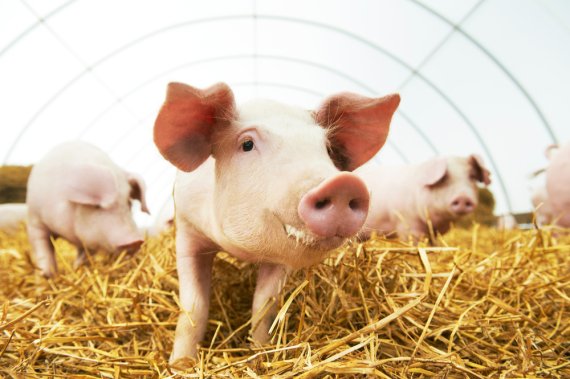© Shutterstock
Pig farmer Laurens Stevelink had been considering the flowerpot idea for a while. ‘I think sustainability is important and I want to help achieve a circular economy. I was inspired by a company in the US that makes pots from cow manure.’ Because his pigs root around on straw and sawdust, the manure is relatively dry and suitable for processing into a product.
These WUR students investigated whether farmer Laurens Stevelink (third from the left) could manufacture flowerpots from pig manure. © Michiel Hupkens
The students first tried to find out whether there is even a market for biodegradable flowerpots made from poop. Plant nurseries and garden centres said they were interested if the pots lasted long enough — at least one year. ‘The potential buyers also want to know how safe it is because they are afraid of getting pathogens,’ says Stefan ten Pierik, Master’s student in Animal Sciences.
Based on these requirements, the students came up with two options: compostable pots and pots you can plant. Both are biodegradable, but the compostable pots are sturdier and last longer. They are not suitable for putting into the soil together with the plant. ‘To get an estimate of the costs of the production process, we looked at a similar product in the US,’ explains Ten Pierik. The calculations showed that only the compostable pots would be financially viable. The machinery for producing the pots you can plant is too expensive for small-scale production.
Stevelink is enthusiastic about the result. ‘Although they had to make a lot of assumptions, so we need to work the concept out in more detail first.’ His pigs produce enough manure for around half a million compostable pots or two million plantable pots a year.

